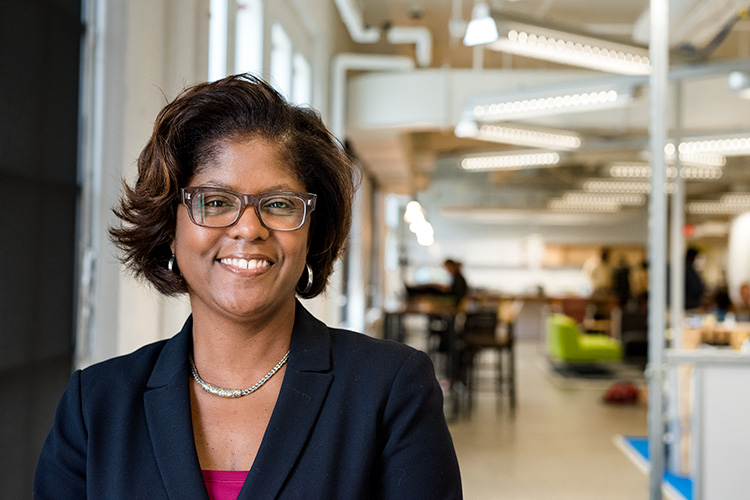
This article is from Model D Media – the original article can be found here.
Across the city’s entire 142 square miles, countless Detroiters have been working to improve their neighborhoods through hard work and innovation. But the projects that get the most daylight are often the newest, flashiest, and most well-funded.
That’s why, over the past year and a half, we’ve been partnering with the New Economy Initiative (NEI) to highlight these neighborhood-based projects in our Detroit Innovation series. And that’s why NEI created the Detroit Innovation Fellowship. 12 fellows involved with nine projects will receive a $10,000 stipend as well as professional development and mentoring opportunities, and convene quarterly as part of a cohort.
To learn more about the fellowship we spoke with Pam Lewis, director of NEI.
Tell me about this group. What stands out about these innovators?
The Detroit Innovation Fellows are a dozen social entrepreneurs leading projects to improve the health, safety, and economic vitality of their neighborhoods. We learned about them through a series of listening sessions we hosted last year in partnership with Model D across Detroit and Highland Park, where we invited residents to share stories of the people who were making change in their communities. Model D wrote about the people we learned about during these sessions in an ongoing series, and we invited some of them to be part of our inaugural cohort of Detroit Innovation Fellows.
The DIF fellows represent a larger group of Detroiters who are dedicated to making their communities better places. Like traditional entrepreneurs, they have identified a problem and are working to solve it. But they are not motivated by personal profit — the outcomes they seek are social dividends. In some instances, they are creating opportunities for their neighbors to make a living. In other cases, they’re working to create conditions in neighborhoods that give residents agency over the future of their communities, whether its through business, the arts, land use and ownership, or otherwise.
These are people who are working in neighborhoods across the city and have a great diversity of experiences.
What are some of the threads or themes that connect them?
What we are really excited about is that there is no single mold for a Detroit Innovation Fellow. Our group has folks in their 20s who’ve been working on their projects for a few years alongside others who’ve been doing community development work for decades.
Most of our fellows’ work is rooted in place. They’re operating at geographic scales ranging from individual lots to streets to entire neighborhoods. Many are focused on land use and real estate. I think this has to do with common challenges people around the city are experiencing related to blight and vacancy, as well as concurrent development pressures that are reshaping neighborhoods.
At a higher level, each DIF fellow’s project is established, i.e. not a startup, and has a track record of community engagement. All of our fellows exhibit a collaborative spirit and a willingness to partner with neighbors to get things done.
You’re providing the fellows with grants and technical assistance, but why did you also want to create a cohort?
We thought it was important to create a peer network for people leading neighborhood-based innovation projects. It’s easy to feel like you’re on an island when you’re doing neighborhood work, but there are others out there who understand the forces you’re up against and can support you by sharing lessons and resources.
Why is it important to elevate projects of this kind?
There are lots of people doing amazing things in Detroit without much fanfare or financial support. It’s important that we recognize them so that people locally and nationally understand that a little investment in neighborhood innovators and their projects can go a long way. We look at this fellowship as something of a mini version of the MacArthur Fellowship, which is known colloquially as the MacArthur “genius” grants. In short, we see the DIF program as a way to invest in local talent.
What do you hope will be some of the outcomes of this fellowship?
First, we want our fellows to receive the recognition they deserve for the work they’re doing in their neighborhoods. Hopefully this fellowship will raise their profile both locally and nationally. Second, we’re hoping to create a city-wide network of innovators who can help each other identify opportunities and address challenges. Finally, we’re hoping that other funders and investors will recognize, and ultimately invest in, the talent and innovation that’s developing within our neighborhoods. Detroit’s revitalization won’t come strictly from top-down interventions; It will happen when we empower people at the grassroots to shape the futures of their own neighborhoods.
Again this is an excerpt from Model D Media Article – the original can be found here.
